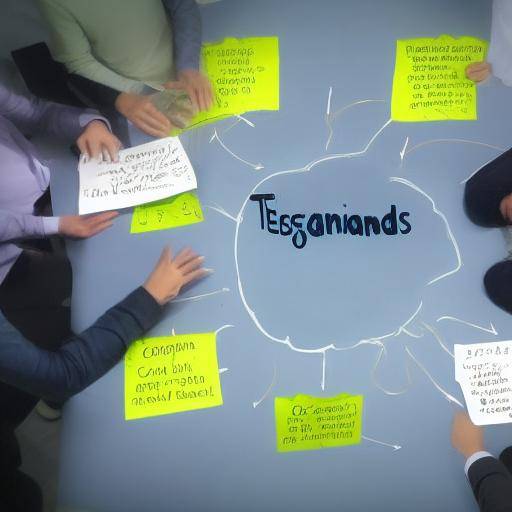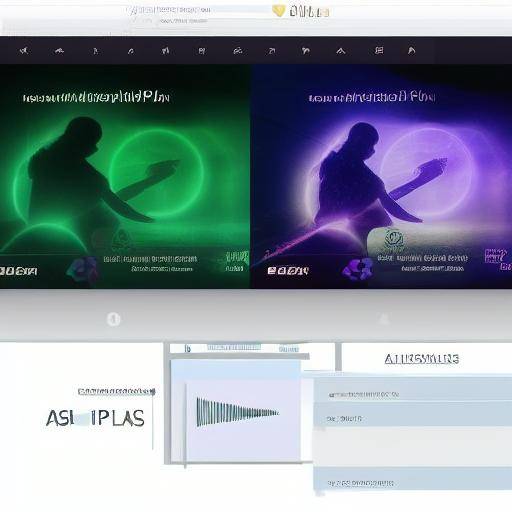
Introduction
Often, on the road to success, we find situations in which to say "no" becomes fundamental to keep us focused on our goals. To say "no" to distractions, non-priority tasks or commitments that divert us from our goals is an act of self-discipline that can make the difference between success and stagnation. In this article, we will explore how the focus on objectives and knowing how to say "no" can be powerful tools to improve productivity, efficiency and successful results.
History and background
The concept of objective approach has its roots in business management and psychology. Throughout history, influential figures such as Peter Drucker and Edwin Locke have contributed significantly to the study and promotion of an objective approach to maximize productivity and personal performance. The evolution of this philosophy has been marked by important milestones, such as the integration of the objective approach in time management and personal attention.
In parallel, the art of saying "no" has become a relevant subject in the business and personal world. As demands and distractions multiply, the ability to set boundaries and priorities becomes crucial to keeping us focused on our goals and objectives. Over the years, experts in leadership, personal development and productivity have actively advocated the importance of setting boundaries and saying "no" in a assertive way.
Deep analysis
The focus on objectives and the ability to say "no" go hand in hand in search of efficiency and personal success. By adopting an objective-based approach, we can clearly define our goals, allocate resources and efforts strategically, and remain motivated to achieve tangible results. On the other hand, the ability to say "no" allows us to protect our time, energy and resources, avoiding distractions and commitments that do not bring us closer to our goals.
The effective management of the objective approach and the ability to say "no" entail many benefits, such as increased productivity, stress reduction and a sense of achievement by achieving significant goals. However, they also present challenges, as saying "no" can be uncomfortable or generate tensions in certain social or professional contexts. By understanding and addressing these challenges, we can perfect our skills to keep a clear focus on our goals.
Comprehensive review
Throughout various industries and fields, the focus on objectives and the ability to say "no" are manifested in varied and effective ways. From project management to entrepreneurship, the implementation of objective-focused strategies and the ability to set boundaries with assertiveness have generated remarkable successes and valuable lessons. Exploring study cases and best practices gives us a deeper understanding of how to effectively apply these skills in different scenarios.
In addition, emphasizing the views of experts and current trends in productivity and personal development, we can anticipate future advances and challenges in managing the objective approach and the ability to say "no." In analysing various perspectives and case studies, we can identify emerging trends and opportunities to optimize the implementation of these strategies in different contexts.
Comparative analysis
By analyzing the objective approach and the ability to say "no," it is clear that both share a common goal: maximizing our efficiency and effectiveness in the pursuit of significant achievements. However, each concept addresses this goal from complementary perspectives. While the objective approach guides us towards clear and quantifiable goals, the ability to say "no" protects us from superfluous distractions and demands, ensuring that our efforts are aligned with our priority goals. Through concrete examples and everyday scenarios, we can understand how the balanced combination of focus on objectives and the ability to say "no" can enhance our overall productivity and well-being.
Practical advice and recommendations
By seeking to strengthen our focus on objectives and the ability to say "no," we can implement a series of practical tips that will allow us to optimize our performance. From time management techniques to assertive communication strategies, there are various tools and approaches that can deliver tangible results in our personal and professional lives. Through step-by-step guides and lists listed, we can present these recommendations in a clear and accessible way for readers interested in enhancing their skills in this regard.
Industry perspectives and expert opinions
Collecting and presenting expert perceptions from various areas related to the objective approach and assertive decision-making provides a detailed view on the impact and relevance of these concepts in the real world. Reviewing future implications and industry trends gives us an overview of the challenges and opportunities that await on the horizon. By integrating interviews and expert quotations, we can enrich the content with ideas and value perspectives that enhance the understanding of these topics.
Case studies and practical applications
The inclusion of detailed study cases that demonstrate practical objective approach applications and the ability to say "no" in real environments will strengthen the content and provide concrete examples to illustrate its impact. Analyzing the results and lessons learned from these practical applications will enable readers to understand the possibilities and challenges inherent in the effective implementation of these concepts in real contexts.
Future trends and predictions
In anticipating emerging trends related to the objective approach and assertive decision-making, this segment of the article will provide a prospective view that nourishes the content with relevant and stimulating information. By basing such predictions on current data and expert opinions, future analysis will add significant value to content, promoting reflection and debate on potential destinations of the evolution of these concepts in the future.
Conclusions and FAQs
Conclusion
The objective approach and the ability to say "no" represent two essential facets for personal success and realization. By integrating these strategies in a balanced and efficient way, we can enhance our productivity, reduce stress and move towards meaningful goals with greater clarity and determination. By implementing the lessons and recommendations shared in this article, readers can head towards a more focused life, focused on their goals and with assertive decision-making.
Frequently asked questions
1. How can I learn to say "no" in an assertive manner without generating conflicts?
To learn to say "no" in a assertive way, it is crucial to focus on clear and respectful communication. By exposing your limits calmly and politely, you can effectively express your refusal without generating unnecessary conflicts.
2. What is the importance of establishing clear and quantifiable targets in the target approach?
Establishing clear and quantifiable goals in the target approach provides a clear and realistic direction to boost our efforts towards tangible achievements. These goals serve as benchmarks that keep us focused and motivated on the path to success.
3. What are some practical tips to stay focused on long-term goals?
Some practical tips to stay focused on long-term goals include time-efficient organization, regular review of targets and proactive elimination of non-priority distractions. Adapting our environment and routines to support our goals is also critical.
4. What is the impact of the ability to say "no" in stress reduction and overload?
The ability to effectively say "no" can significantly reduce stress and overload by limiting our exposure to non-priority tasks, non-essential commitments and excessive demands. By setting clear limits, we protect our energy and focus on what really matters.
5. How can I apply the objective approach and the ability to say "no" in a working environment?
By applying the objective approach in a working environment, it is essential to establish clear goals aligned with organizational and personal objectives. The ability to say "no" implies carefully assessing labour demands and commitments to prioritize tasks that contribute to achieving significant goals.
6. What are some effective strategies for undertaking work commitments without compromising the objective approach?
In undertaking labour commitments, it is essential to assess their alignment with priority objectives and to establish clear limits on the ability to commit without diverting the focus from the main objectives. Effective communication and strategic time management can be powerful tools in this context.
Conclusion
In the end, the focus on objectives and the ability to say "no" are two essential tools that can enhance our effectiveness, well-being and achievement of significant results. By strategically integrating these skills into our personal and professional life, we can embrace a path of greater clarity, determination and success. We hope that this article has provided valuable information and practical suggestions to strengthen these essential skills in everyday life. Let us go with determination towards our goals!
In short, the objective approach and the ability to set boundaries with assertivity play key roles in achieving significant results in our life and career. By understanding its importance, challenges and opportunities, we can enrich our decision-making skills, maximize our efficiency and move forward with determination towards successful goals. This article offers a profound and practical insight into how to effectively integrate these skills into our daily lives, providing tools and tips that can boost our productivity, well-being and success.






















































